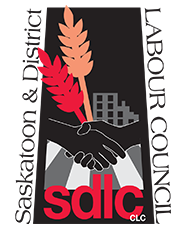We've compiled some frequently asked questions about our union and your workplace place rights. Take a look below. If you can't find an answer to your questions, contact us and we'll be happy to connect with you!
Union
We invite you to explore our website to learn more about how our union operates, the important work our members do on various committees, and we invite you to connect with us on Facebook, Bluesky and Instagram.
SGEU also offers several Learning Development (LD) courses that will increase your knowledge of your union. LD 5 provides an introduction to SGEU. You may also be interested in LD 10, which focuses on the role of the steward; and LD 11, which focuses on respectful workplaces. To register for these courses, sign up via the course calendar or contact educate@sgeu.org.
As well, you can always talk to your local steward or other elected representatives if you have questions about SGEU.
SGEU’s top priority is to represent members through collective bargaining and during workplace disputes. Our union also works to maintain strong public services and to improve conditions for people across Saskatchewan.
We oppose privatization and champion investment in dependable, cost-effective public services; advocate for equitable treatment for marginalized groups; push for safer and fairer labour legislation and a higher minimum wage; and much more. Some of this work is done directly by SGEU, and some of it is done through labour organizations SGEU is affiliated with: the Saskatchewan Federation of Labour, the National Union of Public and General Employees, and the Canadian Labour Congress.
A bargaining unit is our union's term for a group of people who are covered by the same collective agreement. In most cases, your bargaining unit is the same as your workplace. For example, if you work at the Saskatchewan Cancer Agency, then you’re part of the Saskatchewan Cancer Agency bargaining unit.
It’s a little different for direct employees of the provincial government, who work for many different ministries and agencies, but who share the same collective agreement and belong to one bargaining unit called Public Service/Government Employment (PS/GE). For instance, members who work for the Ministry of Education are members of the PS/GE bargaining unit, and so are those who work at the Milk Marketing Board or the Saskatchewan Police Commission. (You can see a complete list of all the employers that are part of PS/GE bargaining unit on the PS/GE webpage.
A Collective Bargaining Agreement is a contract negotiated between a union and an employer. It outlines the conditions of employment, including wages, hours of work, benefits, and other conditions. Members elect a committee to negotiate an agreement on their behalf, and once a tentative agreement is reached, members vote on whether or not to accept it.
There are two main ways for SGEU members to participate in the process of bargaining their collective agreement. One is to seek election to your bargaining unit’s bargaining committee – the group of members who negotiate the terms of the agreement with the employer.
You can also make your ideas known during the proposals conference that occurs before a round of collective bargaining. Before the end of the term of your current collective agreement, all members of your bargaining unit will be contacted asking them to submit written suggestions for new bargaining proposals. If these are accepted, they will be taken forward by the bargaining committee, who will seek to have them included in the collective agreement.
Union dues are set by a vote at each year’s annual convention. Beginning on July 1, 2023, union dues are 1.8 per cent.
- As a unionized Saskatchewan worker, I earn an average of 20% more per hour than non-unionized workers.
- If my job is abolished, I have bumping rights or I will receive severance pay.
- When I’m treated unfairly at work, my union will represent me.
- When my collective agreement is ignored or broken by the employer, my union can help me file a grievance or use problem-solving approaches to address the situation.
- When governments bring in legislation that take away social benefits for workers and the unemployed, I know that my union will fight for justice.
- When it comes time to bargain a new collective agreement, my bargaining unit has access to expert staff and resources that can help us improve our working conditions and compensation. Many SGEU members enjoy improved wages, dental and health care plans, pensions, paid leaves, and other benefits earned through collective bargaining.
- Not only do my union dues deliver all of this and more, they are tax-deductible, too.
Yes! SGEU offers a set of annual scholarships and bursaries, worth more than $65,000, that are available to members and their dependents. Which scholarships and bursaries are available to you or your dependent will depend on factors like which sector you belong to and the subject of study being pursued. Learn more about SGEU scholarships.
Workplace Rights
Your job classification describes the work you do. It is an assessment of things like the skills and effort required to perform your job, the working conditions, and the amount of responsibility involved. Your wages are linked to your job classification. Classification procedures vary between collective agreements – you can get specific information on your job classification by consulting your collective agreement, or contacting your employer or your steward.
If you feel your job is incorrectly classified, you can ask for a classification review. The review will be performed by the employer or a joint union-management committee, depending on your collective agreement. If you are not satisfied with the re-classification decision, you may appeal or grieve the outcome.
If you are unsure of your workplace rights or feel they are being violated, SGEU has expert staff available to assist you. Contact us and you'll be directed to someone who can assist you.
You may also find these links useful:
- You can learn more about labour standards on the website of the Ministry of Labour and Workplace Safety.
- WorkSafe Saskatchewan and Safety in the Workplace offer useful information about Occupational Health and Safety.
- If you are injured on the job, or have questions about workers’ compensation in Saskatchewan, contact the Workers’ Compensation Board.
Yes. Under Section 3-31 of the Saskatchewan Employment Act, you have the right to refuse any work that is unusually dangerous to your health and safety, or to the health and safety of someone else at your workplace. Section 3-35(f) of the Act prevents your employer from punishing you for exercising this right. However, there are some requirements to keep in mind:
- You must have “reasonable grounds to believe” the work you're refusing is unsafe. This means you must have an honest belief that your work or work environment will cause you or someone else harm.
- You must immediately report your concern to a supervisor. Stay at work, but in a safe place away from the hazard, unless the entire workplace is affected (i.e. bad air, high noise) or unless your employer has given you permission to leave.
- If your supervisor doesn’t resolve your concern to your satisfaction, then you must then report your concern to your Joint Occupational Health and Safety Committee or to the OH&S Division of the Ministry of Labour Relations and Workplace Safety. An investigation will then be carried out. While an investigation is being carried out, your employer is allowed to re-assign you to other work.
Apart from the right to refuse unsafe work, Saskatchewan workers have two main rights. You have the right to know about hazards in your workplace and how to deal with them safely, and the right to participate in addressing health and safety issues at your workplace. To learn more, see the page for SGEU's Occupational Health and Safety Committee.
Most collective agreements require an employer to have ”just cause” or “good and sufficient cause” for disciplining or terminating an employee. This means an employer cannot arbitrarily discipline or fire you. They must be able to prove that your conduct or performance was inappropriate, that it warranted discipline or termination, and that they made you aware of any issues and attempted to resolve them.
Management rights clauses appear in almost every collective agreement and establish the right of the employer to control and direct the workplace. Unions often try to negotiate boundaries around management rights to protect workers from arbitrary actions.
Unions generally negotiate a union security clause, which establishes the union as the sole bargaining agent for that group of workers, and also establishes the right of that union and its representatives to act on behalf of the membership.





